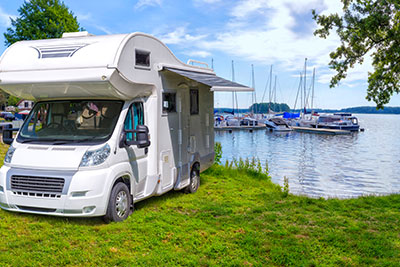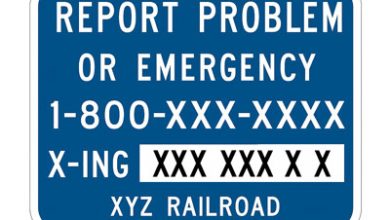Get Covered for Summer Fun

 Summer is just around the corner, and for many, that means hitting the open road in your RV or gliding across the water in your boat! These “toys” bring incredible joy and freedom, but just like your home or car, they need the right protection. As your trusted insurance agency, we want to ensure your adventures are worry-free, so let’s dive into some essential insurance tips for RV and boat owners.
Summer is just around the corner, and for many, that means hitting the open road in your RV or gliding across the water in your boat! These “toys” bring incredible joy and freedom, but just like your home or car, they need the right protection. As your trusted insurance agency, we want to ensure your adventures are worry-free, so let’s dive into some essential insurance tips for RV and boat owners.
Is Your “Toy” Properly Covered? Understanding Your Policy
It’s easy to assume your RV or boat is automatically covered under your existing home or auto policy. Unfortunately, that’s rarely the case. RVs and boats require specialized “toy” policies designed to address their unique risks.
- RV Insurance: Think of RV insurance as a hybrid of auto and home insurance. It typically covers liability if you cause an accident, collision and comprehensive for damage to your RV, and often includes coverage for personal belongings inside your RV, emergency roadside assistance, and even full-timer liability if your RV is your primary residence.
- Boat Insurance: Boat insurance offers similar protections, including liability for accidents you cause on the water, coverage for damage to your boat (whether from collision, fire, theft, or vandalism), and often includes specialized coverage for things like wreckage removal, personal effects on board, and uninsured boater coverage.
Key Takeaway: Don’t wait until something happens to find out you’re underinsured. Review your policy with us to ensure it adequately covers your specific RV or boat, its usage, and your potential liabilities.
Usage Guidelines: When and Where Are You Covered?
Understanding your policy’s usage guidelines is crucial. Not all policies are created equal, and restrictions can apply based on how and where you use your RV or boat.
- RV Usage: Are you a weekend warrior or a full-time RVer? Some policies have mileage limitations or exclude coverage if your RV is your primary residence without a specific endorsement. If you rent out your RV, you’ll definitely need different coverage.
- Boat Usage: Do you primarily use your boat on inland lakes or venture into coastal waters? Some policies have navigational limits, meaning they won’t cover you if you’re outside a specified geographic area. If you use your boat for commercial purposes (like charters), your personal policy won’t suffice.
- Off-Season Use: Even if your RV or boat is stored for the winter, you might still need coverage for theft, fire, or vandalism. Discuss “lay-up” or “storage” coverage options with us, which can sometimes reduce your premium during the off-season while still providing essential protection.
Pro Tip: Always inform us of any changes to your usage habits. A quick phone call can prevent a significant headache down the road.
Transportation: Protecting Your Investment on the Move
Proper storage and transportation are not just about maintenance; they’re also important from an insurance perspective.
- Secure Storage: Where do you keep your RV or boat when not in use? Storing your vehicle in a secure, covered facility or a locked garage can sometimes qualify you for discounts. Conversely, storing it in a high-risk area could impact your rates or even your coverage.
- Winterizing: For boats and RVs in colder climates, proper winterization is key to preventing damage from freezing pipes or engines. Failing to adequately winterize your vehicle could lead to denied claims if the damage is a result of negligence.
- Transportation: When trailering your boat or towing your RV, it’s important to understand how coverage works:
- Liability: The tow vehicle’s liability insurance typically extends to cover damages or injuries you cause to others while towing your RV (including travel trailers) or boat trailer. Ensure your auto policy has sufficient liability limits.
- Physical Damage (Collision/Comprehensive):
- For travel trailers (towable RVs), damage to the trailer itself (from collision, theft, fire, etc.) is covered by the travel trailer’s own RV insurance policy, not your tow vehicle’s auto policy.
- For boats, damage to the boat while it’s being trailered is typically covered under your boat insurance policy.
- For motorhomes, the motorhome’s collision and comprehensive coverage applies whether it’s being driven or towed (in the event it needs to be moved by another vehicle).
Think Ahead: Before you embark on your next adventure or tuck your vehicle away for the season, consider the safety measures you’re taking. Not only do they protect your valuable asset, but they can also positively impact your insurance.
Ready for Your Next Adventure?
Don’t let insurance questions keep you from enjoying your RV or boat to the fullest. Our team is here to help you navigate the complexities of “toy” policies and ensure you have the right coverage for your unique needs. Contact Robins Insurance today for a personalized quote and let’s get you ready to cruise into a summer of fun!
Disclaimer: The information provided in this blog post is intended for general knowledge and informational purposes only, and does not constitute professional insurance advice. The content is not exhaustive and does not cover all potential situations. It is essential to review your specific insurance policy and discuss your individual circumstances with your insurance agent or broker. We strongly recommend that you consult with a qualified insurance professional to address your insurance needs and questions.
Source link



